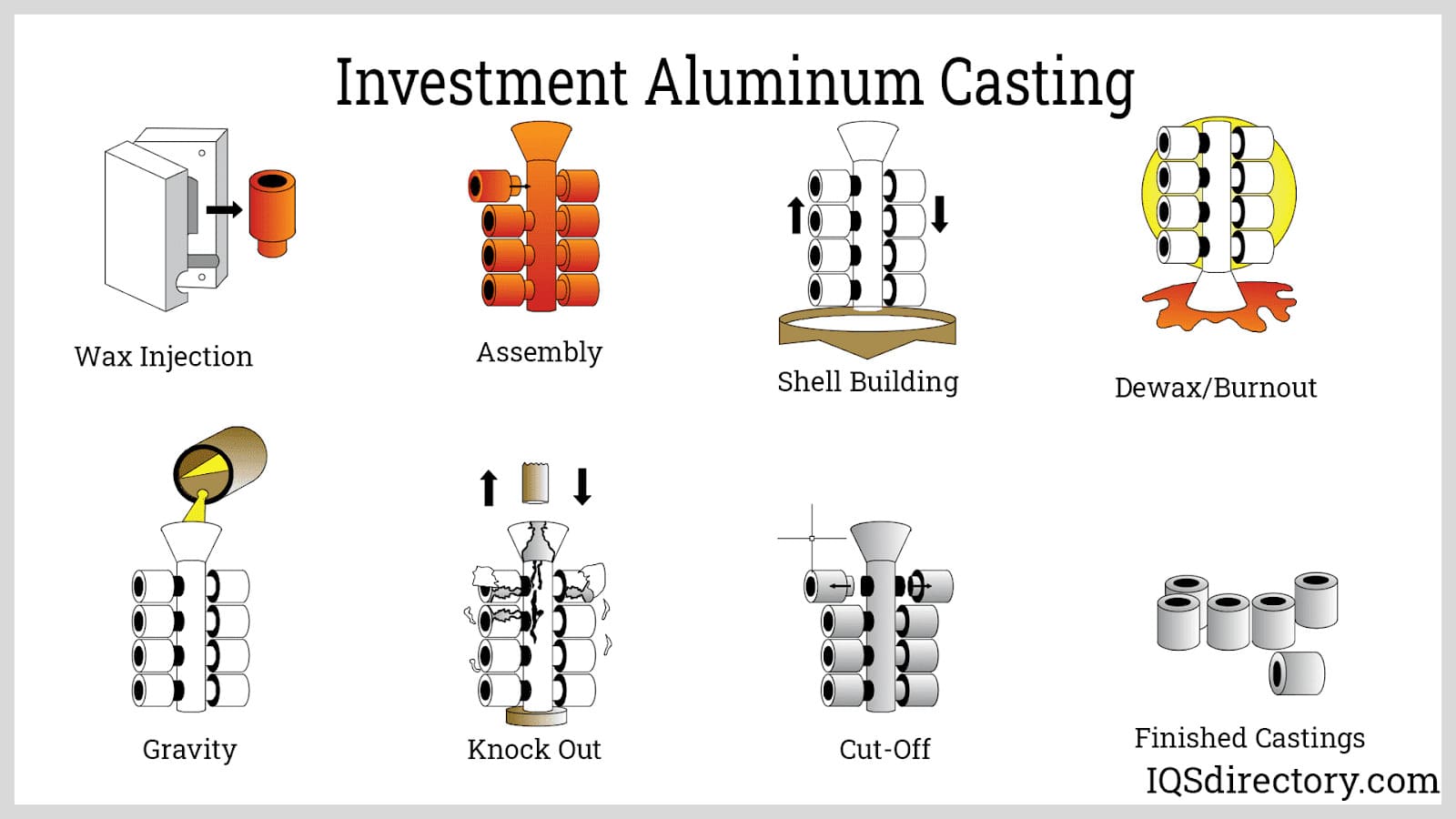How Stahl Specialty Company can Save You Time, Stress, and Money.
How Stahl Specialty Company can Save You Time, Stress, and Money.
Blog Article
See This Report about Stahl Specialty Company
Table of ContentsAll about Stahl Specialty CompanyStahl Specialty Company Things To Know Before You BuySee This Report on Stahl Specialty CompanyThe Definitive Guide to Stahl Specialty CompanyStahl Specialty Company for Dummies
Chemical Comparison of Cast Light weight aluminum Alloys Silicon advertises castability by reducing the alloy's melting temperature and improving fluidness during casting. In addition, silicon contributes to the alloy's strength and wear resistance, making it valuable in applications where sturdiness is crucial, such as vehicle components and engine parts.It also enhances the machinability of the alloy, making it simpler to process right into ended up products. In this means, iron adds to the general workability of light weight aluminum alloys. Copper boosts electrical conductivity, making it useful in electric applications. It likewise enhances rust resistance and includes in the alloy's general strength.
Manganese adds to the stamina of light weight aluminum alloys and enhances workability. It is commonly utilized in wrought light weight aluminum products like sheets, extrusions, and accounts. The existence of manganese aids in the alloy's formability and resistance to cracking during fabrication processes. Magnesium is a lightweight element that supplies stamina and impact resistance to light weight aluminum alloys.
It enables the manufacturing of lightweight parts with exceptional mechanical residential or commercial properties. Zinc improves the castability of aluminum alloys and aids regulate the solidification procedure during casting. It enhances the alloy's strength and solidity. It is frequently found in applications where complex shapes and fine details are needed, such as ornamental castings and certain vehicle components.
Some Known Questions About Stahl Specialty Company.
Due to the fact that aluminum-silicon alloys have good casting homes, high gas homes, easy processes, and excellent corrosion resistance, aluminum-silicon alloys are most generally utilized in the die-casting market in your home and abroad. At the very same time, aluminum-silicon alloys are also reasonably early and extensively acknowledged alloys established and made use of in die-casting. After continual study and improvement, the majority of the existing global mainstream aluminum-silicon alloys have been finalized and are absolutely nothing greater than A356, A360, A380, ADC12, B390, and A413.
The key thermal conductivity, tensile toughness, return stamina, and elongation differ. Among the above alloys, A356 has the highest thermal conductivity, and A380 and ADC12 have the cheapest.

The Ultimate Guide To Stahl Specialty Company
In precision casting, 6063 is fit for applications where elaborate geometries and top notch surface finishes are vital. Examples include telecommunication rooms, where the alloy's remarkable formability enables for streamlined and cosmetically pleasing designs while maintaining structural honesty. Similarly, in the Illumination Solutions market, precision-cast 6063 elements create elegant and efficient illumination fixtures that require elaborate forms and great thermal efficiency.
(https://sitereport.netcraft.com/?url=https://stahlspecialty.com)
The A360 exhibits exceptional prolongation, making it excellent for facility and thin-walled elements. In accuracy casting applications, A360 is appropriate for industries such as Customer Electronic Devices, Telecommunication, and Power Devices.

In accuracy casting, light weight aluminum 413 radiates in the Customer Electronics and Power Devices industries. This my explanation alloy's premium corrosion resistance makes it a superb choice for outdoor applications, ensuring lasting, long lasting items in the discussed sectors.
Some Known Questions About Stahl Specialty Company.
When you have determined that the aluminum pass away casting process is appropriate for your job, an important next action is picking the most suitable alloy. The light weight aluminum alloy you select will substantially affect both the spreading process and the residential properties of the end product. Since of this, you should make your decision very carefully and take an educated strategy.
Identifying the most ideal aluminum alloy for your application will certainly imply considering a wide range of characteristics. These comparative alloy qualities adhere to the North American Pass Away Spreading Association's guidelines, and we have actually split them right into 2 groups. aluminum foundry. The first category addresses alloy qualities that affect the production procedure. The 2nd covers attributes influencing the residential or commercial properties of the final item.
The alloy you choose for die casting directly affects several elements of the spreading process, like just how simple the alloy is to collaborate with and if it is prone to casting defects. Warm breaking, likewise referred to as solidification splitting, is a common die casting issue for light weight aluminum alloys that can lead to interior or surface-level tears or fractures.
Top Guidelines Of Stahl Specialty Company
Certain light weight aluminum alloys are much more vulnerable to warm splitting than others, and your option should consider this. An additional typical issue located in the die spreading of light weight aluminum is die soldering, which is when the cast adheres to the die walls and makes ejection hard. It can damage both the cast and the die, so you ought to seek alloys with high anti-soldering buildings.
Corrosion resistance, which is currently a significant feature of light weight aluminum, can differ significantly from alloy to alloy and is a vital characteristic to consider depending upon the ecological problems your product will be exposed to. Put on resistance is an additional residential property typically sought in aluminum items and can set apart some alloys.
Report this page